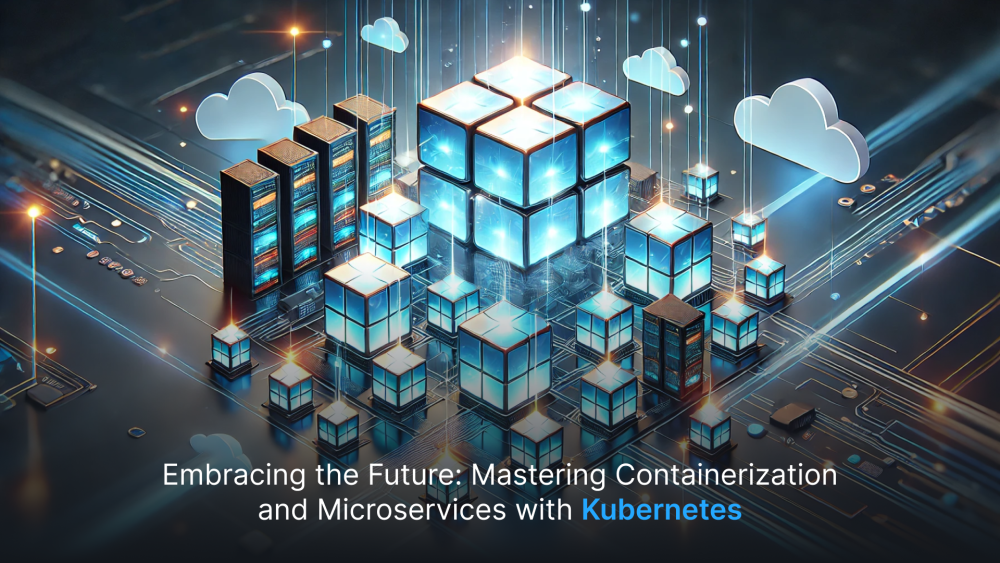The modern software landscape has witnessed a significant shift towards containerization and microservices architectures. These paradigms offer numerous benefits, including improved scalability, flexibility, and efficiency. Kubernetes, a leading orchestration platform, has emerged as a key player in enabling organizations to effectively manage and deploy containerized applications.
Understanding Containerization and Microservices
Containerization is a packaging technology that bundles an application and its dependencies into a single unit, ensuring consistent execution across different environments. Containers offer portability, isolation, and efficient resource utilization.
Microservices is a software development approach that breaks down large applications into smaller, independent services that communicate through APIs. This modular architecture enhances scalability, maintainability, and resilience.
The Role of Kubernetes
Kubernetes is an open-source platform designed to automate the deployment, scaling, and management of containerized applications. It provides a declarative API for defining desired application states and automates the process of bringing those states to reality.
Key features and benefits of Kubernetes:
-
Container Orchestration: Manages the lifecycle of containers, including deployment, scaling, and health checks.
-
Self-Healing: Automatically recovers from failures and restarts containers.
-
Service Discovery: Automatically discovers and registers services within a cluster.
-
Load Balancing: Distributes traffic across multiple instances of an application.
-
Declarative Configuration: Defines desired application states using declarative configuration files.
-
Scalability: Easily scales applications up or down based on demand.
The Growing Adoption of Containerization and Microservices
The adoption of containerization and microservices has been on the rise in recent years due to several factors:
-
Improved Scalability: Microservices architecture enables independent scaling of individual components, optimizing resource utilization.
-
Faster Development: Microservices can be developed and deployed independently, accelerating development cycles.
-
Increased Flexibility: Microservices architecture allows for easier technology adoption and experimentation.
-
Enhanced Resilience: Isolated components reduce the impact of failures on the overall system.
-
Cost Efficiency: Containerization and microservices can lead to more efficient resource utilization and cost savings.
A study by Flexera found that 75% of organizations are using containers in production, and 83% of those using containers are adopting microservices architectures.
Integrating Kubernetes into Your Organization
Integrating Kubernetes into your organization involves several key steps:
-
Choose a Deployment Model: Decide whether to deploy Kubernetes on-premises, in the cloud, or in a hybrid environment.
-
Set Up a Kubernetes Cluster: Create a cluster of nodes (virtual or physical machines) to run containers.
-
Containerize Your Applications: Package your applications into Docker containers.
-
Deploy to Kubernetes: Use Kubernetes manifests or tools like Helm to deploy your applications to the cluster.
-
Manage and Monitor: Utilize Kubernetes tools and best practices for ongoing management and monitoring.
Use Cases for Containerization and Microservices
-
Web Applications: Build scalable and performant web applications with microservices architecture.
-
API Development: Create and manage APIs for integration with other systems.
-
IoT Applications: Process and analyze data from IoT devices using containerized microservices.
-
Data Processing Pipelines: Build scalable and flexible data pipelines using containers.
-
Machine Learning and AI: Deploy and manage machine learning models as microservices.
Challenges and Considerations
-
Complexity: Managing Kubernetes clusters can be complex, requiring specialized skills.
-
Security: Ensuring the security of containerized environments is crucial.
-
Network Complexity: Managing network connectivity and traffic between containers can be challenging.
-
Tooling and Ecosystem: The Kubernetes ecosystem is constantly evolving, requiring continuous learning and adaptation.
The Future of Containerization and Microservices
Containerization and microservices are likely to remain dominant trends in software development. As technology advances, we can expect further innovations in Kubernetes and related tools, making it even easier to adopt these paradigms.
Conclusion
Containerization and microservices have revolutionized the way applications are built, deployed, and managed. Kubernetes, as a leading orchestration platform, plays a crucial role in enabling organizations to leverage the benefits of these technologies effectively. By understanding the concepts, addressing challenges, and staying updated with the latest trends, organizations can successfully adopt containerization and microservices to build scalable, resilient, and innovative applications.
How Techwize Can Help
Techwize offers comprehensive services to assist organizations in adopting containerization and microservices:
-
Kubernetes Implementation: Our experts can help you set up and manage Kubernetes clusters.
-
Containerization Consulting: We can guide you in containerizing your applications effectively.
-
Microservices Architecture Design: Our team can help design microservices-based architectures.
-
DevOps Integration: Integrate Kubernetes into your DevOps workflows.
-
Training and Support: Provide training and ongoing support to your team.
By partnering with Techwize, you can leverage our expertise to successfully implement containerization and microservices, unlocking the benefits of these transformative technologies.



.png)